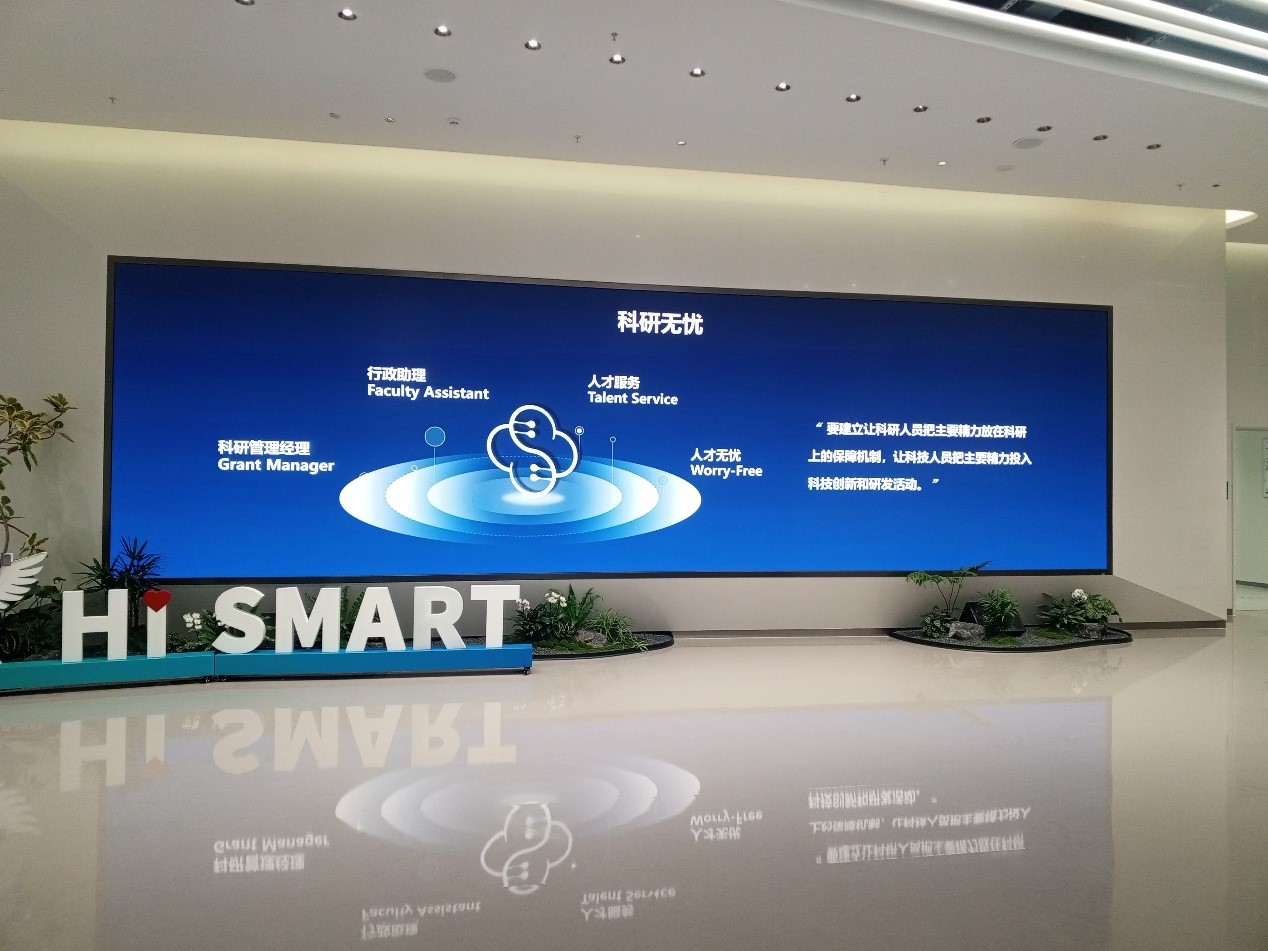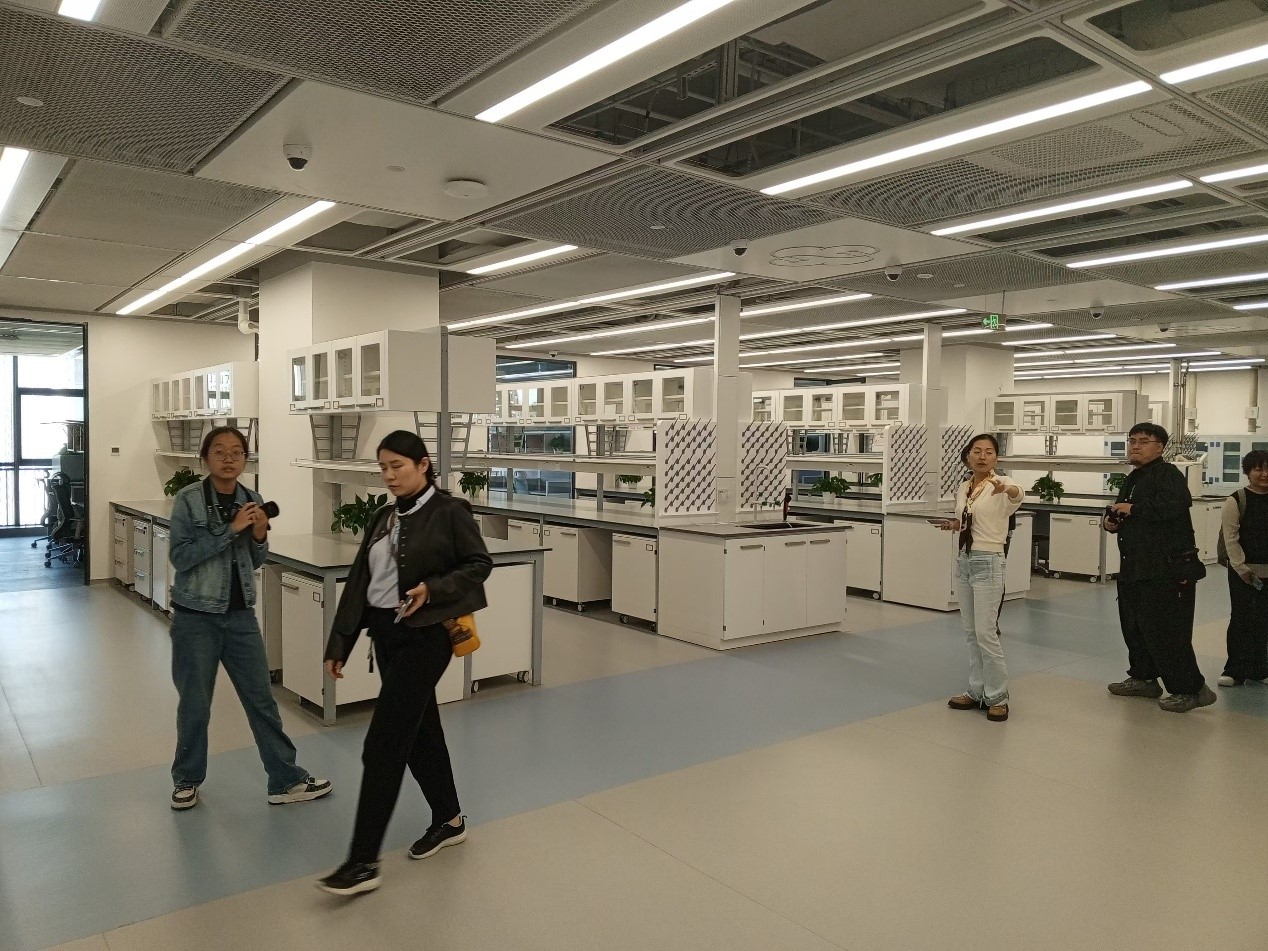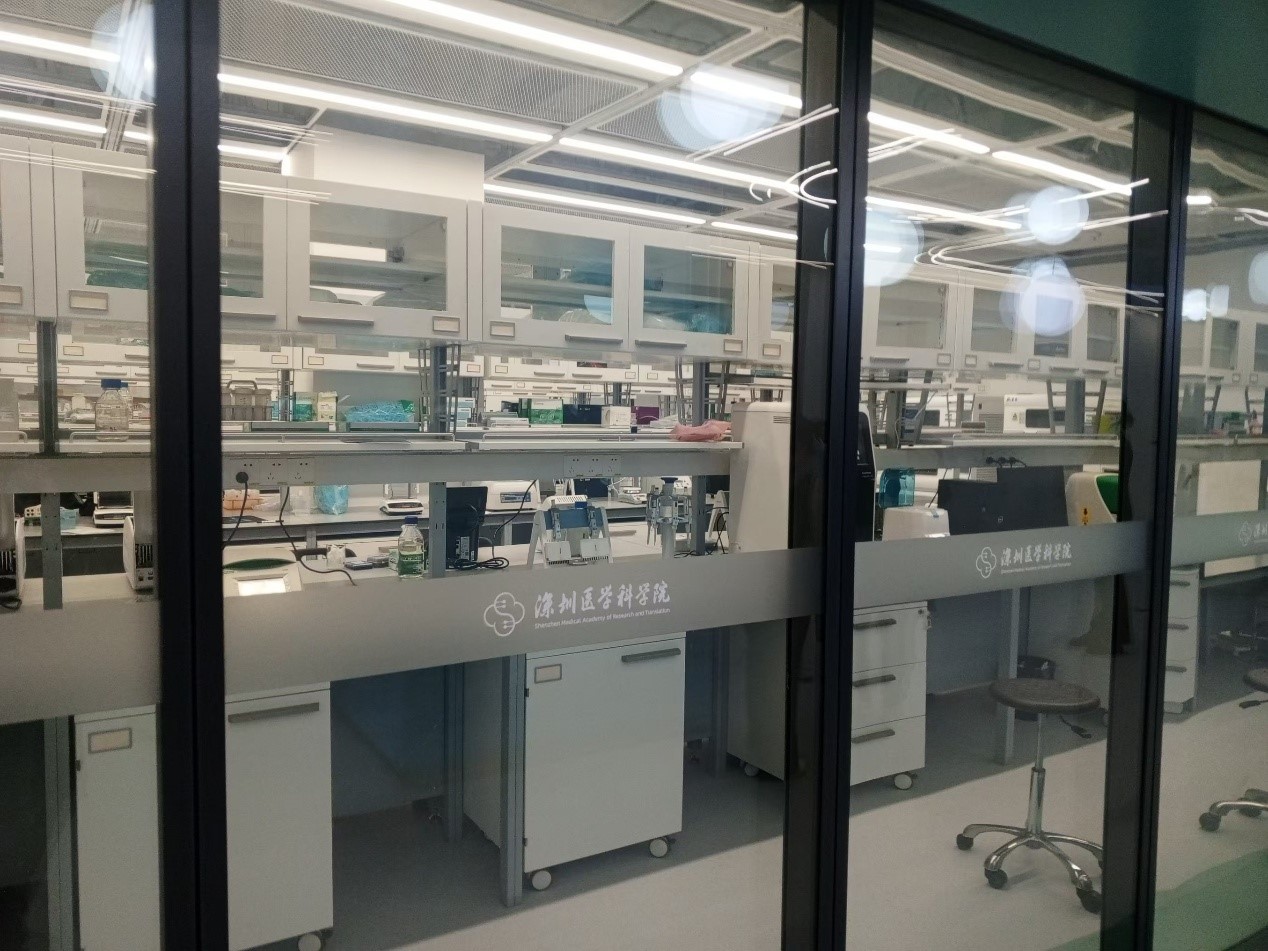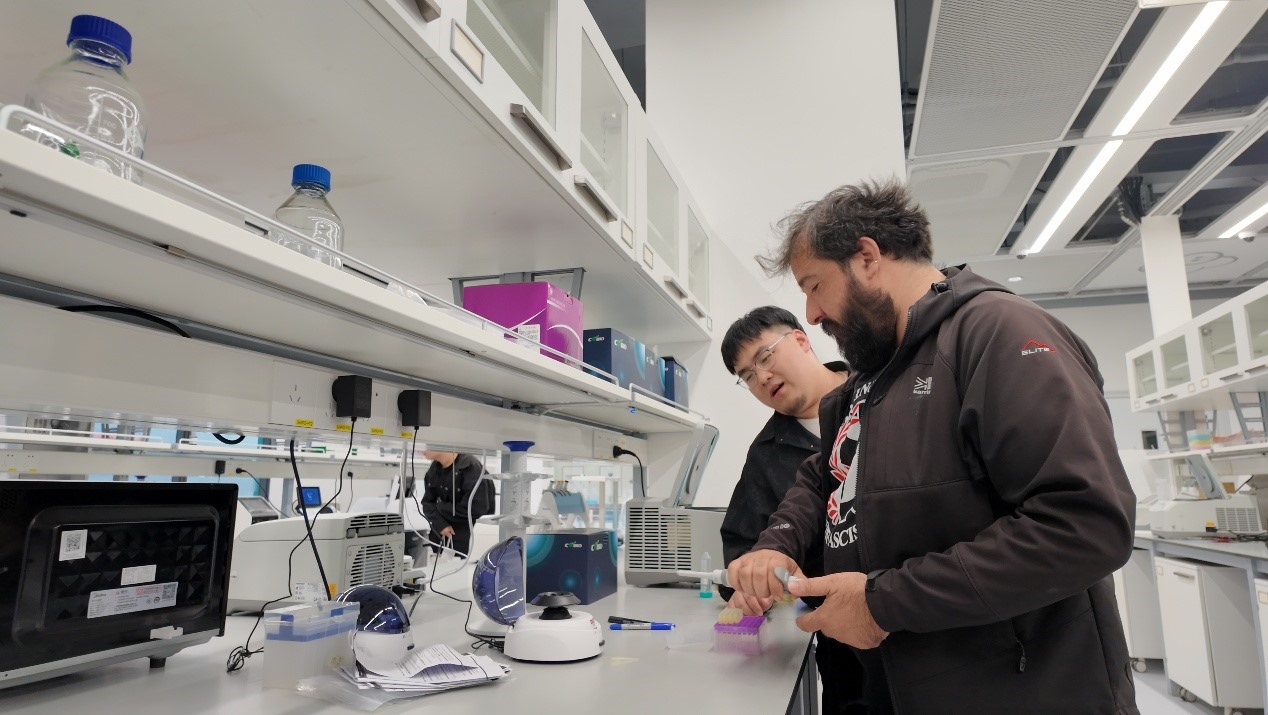SMART: Pioneering the future of biomedical research from Shenzhen

The screen at the entrance of the main building of SMART depicts the institution's research plan, Guangming district, Shenzhen, south China's Guangdong Province, Nov. 29, 2024. (Photo/People's Daily Online)
The Shenzhen Medical Academy of Research and Translation (SMART) is a dynamic and progressive organization in the field of life sciences. The institute is ideally situated in Guangming district, one of Shenzhen's centers for technical and medical innovation. Through its facilities and human resources, the newly established institution demonstrates its dedication to promoting cooperation among fundamental, clinical, and translational experts.
Focus on transdisciplinary research and innovation
The institution's primary goal is to apply scientific findings to challenging health issues, especially considering south China's developing biotech sector. This objective is consistent with Shenzhen's, and subsequently China's, broader strategy to lead the world in the field of biomedical research. SMART's unique approach to transdisciplinary research and its ability to conduct cutting-edge research is based on strong collaborations with prestigious universities and top hospitals, as well as cooperation across sectors to generate important discoveries.
This year the institution launched its PhD Program, which is a collaborative doctoral program that combines corporate participation, education, and research. SMART's graduate program aims to equip the next generation of scientists with the necessary skills. Future scientists will explore deep scientific questions in the realms of life sciences and disease and SMART is built to prepare them for their impactful careers in both academia and the medical field.

During a visit to SMART, People's Daily Online staff members have the privilege of exploring its state-of-the-art chemistry laboratories that wait for the new Principal Investigators (PI) to join them in Guangming district, Shenzhen, south China's Guangdong Province, Nov. 29, 2024. (Photo/People's Daily Online)
Strategic and academic advisory support
The Academic Advisory Board (AAB) and the Strategic Advisory Board (SAB) are two important advisory committees that provide direction to SMART. These organizations bring together worldwide specialists in a range of scientific domains, offering SMART vital guidance on research avenues, encouraging international cooperation, and guaranteeing cutting-edge, creative results. With their help, SMART is better able to adjust to worldwide developments in biomedical research, securing that its activities and academic programs uphold the highest standards. The participation of these advisory boards further demonstrates SMART's dedication to global cooperation. Working with top international scientists and organizations, SMART's scientific teams support the growth of China's medical research ecosystem while preserving a strong global perspective.
Recent advancements and research focus
The contributions of SMART's research personnel in the fields of biochemistry, pharmacology, and structural biology have been noteworthy. Their recent publications in leading scientific journals demonstrate their progress and contributions to our understanding of important biological systems. Their research focuses on sodium channels, glycan components, and protein exploration, which broadens the field's comprehension of molecular interactions. These findings contribute to the development of focused therapeutic agents in addition to being essential for the advancement of fundamental science.
Modern resources at SMART, such as cutting-edge imaging systems, biomolecular research platforms, and genomics tools, give scientists the means to conduct ground-breaking biomedical research. These resources, which support a variety of projects targeted at improving both fundamental science and clinical medicine, are essential to the institute's mission. The accessibility of such state-of-the-art technology creates a cooperative atmosphere where creative concepts may thrive and become practical implementations that enhance public health.

The view of a research laboratory at SMART, Guangming district, Shenzhen, south China's Guangdong Province, Nov. 29, 2024. (Photo/People's Daily Online)
SMART’s vision for the future
In the future, SMART's contribution to Shenzhen's technical and biomedical environment will only increase. SMART is establishing itself as a major force in the worldwide development of biomedical research by educating the next generation of scientists, encouraging partnerships between academia and business, and tackling some of the most important medical issues. SMART will continue to be at the vanguard of this shift as Shenzhen emerges as a global leader in medical research, helping to create novel treatments for both illness and wellness.
In conclusion, SMART is an example of the biomedical research of the future, where collaboration and innovation are brought together to tackle some of the most complicated medical problems of our day. I can appreciate the role that such an institution plays in advancing the scientific understanding of complex biological systems, and I look forward to the impact that SMART will continue to have on the local and global scientific communities.

Dr. Konstantinos E. Papathanasiou, a foreign expert at People's Daily Online, is also an accomplished bioinorganic chemistry researcher. As nominee for the prestigious Marie Skłodowska-Curie Individual Fellowship (MSCA-IF) by the European Research Council, he has contributed to numerous scientific projects across the U.S., Russia, Germany, and the U.K. In this photo, taken at SMART's demo lab, he explains the operation of Eppendorf pipettes to one of his colleagues in Guangming district, Shenzhen, south China's Guangdong Province, Nov. 29, 2024. (Photo/People's Daily Online)
Photos
Related Stories
- Chinese scientists embrace new research paradigm powered by AI
- Extinct volcanoes possible abundant source of rare earth elements: Australian-Chinese research
- China now is a trailblazer in scientific research and innovation: scientists
- Chinese researchers vow to restore seagrass beds
- Top Chinese physicist calls for more investment in basic research planning
- Construction of China's first domestic medical isotope test reactor starts
- Chinese, US researchers jointly develop new type of stable semiconductor graphene with 10 times higher performance than silicon
- Influence of nation's research seen on rise
- Researchers bid to unlock mystery of shrinking mountain peaks
- China's largest fishery scientific research vessel sets sail for the first time to investigate fishery resources
Copyright © 2024 People's Daily Online. All Rights Reserved.









